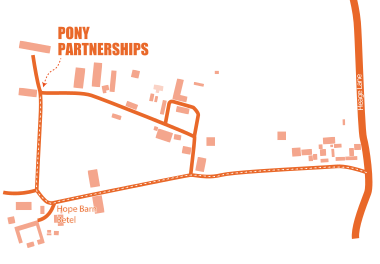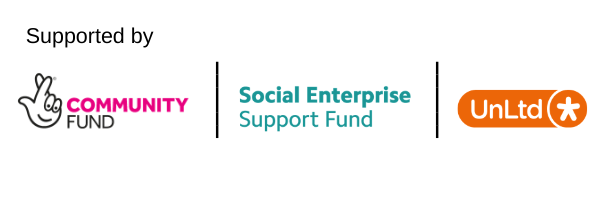Young people and equine therapy – the evidence base
Posted 1 Nov 2017
Young people need to develop social and emotional capabilities to help them achieve the outcomes that they, and others, value both in their lives. Evidence shows that equine facilitated therapeutic activities (EFTA) help young people develop social and emotional capabilities including:
- [endif]secure attachments (Balluerka et al., 2014);
- improved well-being (Boshoff et al., 2015);
- psychosocial benefits (Burgon, 2011);
[if !supportLists]o [endif]managing feelings – regulating emotional behaviour is correlated with higher wages (Hauser et al., 2006)
- positive change (Ewing et al, 2007);
- increased levels of hope (Frederick et al, 2015);
- decreased levels of depression (Frederick et al, 2015);
- increased perceived social support (Hauge et al., 2014);
- self-esteem and self-confidence (Hauge et al., 2014; Johansen et al., 2014; Schultz et al., 2007);
- more consistent behaviour; (Johansen et al., 2014);
- lower cortisol levels (Pendry et al., 2014);
- assertiveness (Johansen et al., 2014);
[if !supportLists]o [endif]confidence and agency – enabling young people to recognise that they can make a difference to their own lives, and that effort has a purpose, is important to key outcomes such as career success (Dweck, 2000)
- increased problem-solving skills and general self-efficacy (Johansen et al., 2014; Hauge et al., 2014);
[if !supportLists]o [endif]planning and problem solving –problem solving, alongside resilience, provides young people with a ‘positive protective armour’ against negative outcomes associated with risky life events (Turner, 2000)
- fewer mentally distressing symptoms (Johansen et al., 2014);
- improved nonverbal and verbal communication and interpersonal effectiveness (Johansen et al., 2014; Schultz et al., 2007)
[if !supportLists]o [endif]communication – good communication is essential for a successful transition to work or training, for independence and to access a range of life opportunities (Clegg et al., 1999). The Rose Review (Rose, 2006) and Bercow Report (Bercow, 2008) highlighted the role of communication in attainment, and forming positive relationships. Improved communication skills have also been linked to reductions in reoffending.
[if !supportLists]o [endif]relationships and leadership – there is a strong relationship between emotional intelligence, positive school transitions and academic success (Qualter; 2007)
- trust (Schultz et al., 2007);
- boundaries and limit-setting (Schultz et al., 2007).
Balluerka, N., Muela, A., Amiano, N., & Caldentey, M.A. (2014) ‘Influence of animal-assisted therapy (AAT) on the attachment representations of youth in residential care’, Children and Youth Services Review, 42(2014) 103–109
Bercow, J (2008) The Bercow Report: A review of services for children and young people (0-19) with speech, language and communication needs. London: DCSF
Boshoff, B., Grobler, H., & Nienaber, A. (2015) ‘The evaluation of an equine-assisted therapy programme with a group of boys in a youth care facility’, Journal of Psychology in Africa, 25:1, 86-90
Burgon, H.L. (2011) ‘Queen Of The World’: Experiences Of ‘At-Risk’ Young People Participating In Equine-Assisted Learning/Therapy’, Journal of Social Work Practice 25(2), pp. 165–183
Cawley, J. (2001) Three observations on wages and measured cognitive ability. Labour Economics 8(4) 419-442
Clegg, J, Hollis, C and Rutter, M (1999) ‘Life sentence: what happens to children with developmental language disorders in later life?’ RCSLT Bulletin. Royal College of Speech and Language Therapists 18
Duckworth, AL and Seligman, MEP (2005) ‘Self-discipline outdoes IQ in predicting academic performance of adolescents’ Psychological Science, 16:12 pp 939–944
Dweck, C (2000) Self-Theories: Their role in personality, motivation and development. Philadelphia: Psychology Press
Ewing, C.A., MacDonald, P.M., Taylor, M., Bowers, M.J. (2007) Equine-Facilitated Learning for Youths with Severe Emotional Disorders: A Quantitative and Qualitative Study’, Youth Care Forum (2007) 36:59–72
Frederick, K.E., Hatz, J.I., & Lanning, B. (2015) ‘Not Just Horsing Around: The Impact of Equine-Assisted Learning on Levels of Hope and Depression in At-Risk Adolescents’, Community Mental Health Journal 51:809–817
Gowers, S. G., Harrington, R. C. & Whitton, A. (1998) Health of the Nation Outcome Scales for Children and Adolescents (HoNOSCA). London : Royal College of Psychiatrists’ Research Unit.
Hauge, H., Kvalem, I.L., Berget, B., Enders-Slegers, M-J., & Braastad, B.O. (2014) ‘Equine-assisted activities and the impact on perceived social support, self-esteem and self-efficacy among adolescents – an intervention study’
Hauser, S, Allen, J and Golden, E (2006) Out of the Woods: Tales of resilient teens Harvard
University Press.
Johansen, S.G., Arfwedson Wang, C.E., Binder, P-E., & Malt, U.F. (2014) ‘Equine-Facilitated Body and Emotion-Oriented Psychotherapy Designed for Adolescents and Adults Not Responding to Mainstream Treatment: A Structured Program ‘, Journal of Psychotherapy Integration, Vol. 24, No. 4, 323–335
Pendry, P., Smith, A.N., & Roeter, S.M. (2014), ‘Randomized Trial Examines Effects of Equine Facilitated Learning on Adolescents’ Basal Cortisol Levels’, Human-Animal Interaction Bulletin, 2(1), 80-95
Qualter, P., & Gardner, K.J. (2007) Emotional Intelligence: Review of Research and Educational Implications. UK Pastoral Care, 25(1), pp. 11-20
Rose, J (2006) Independent Review of Early Reading. London: DCSF
Schultz, P.N., Remick-Barlow, A., & Robbins, L. (2007) ‘Equine-assisted psychotherapy: a mental health promotion/intervention modality for children who have experienced intra-family violence’, Health and Social Care in the Community, 15(3), 265–271
Turner, M (2000) Good kids in bad circumstances: a longitudinal analysis of resilient youth. Rockville, MD: National Institute of Justice



















